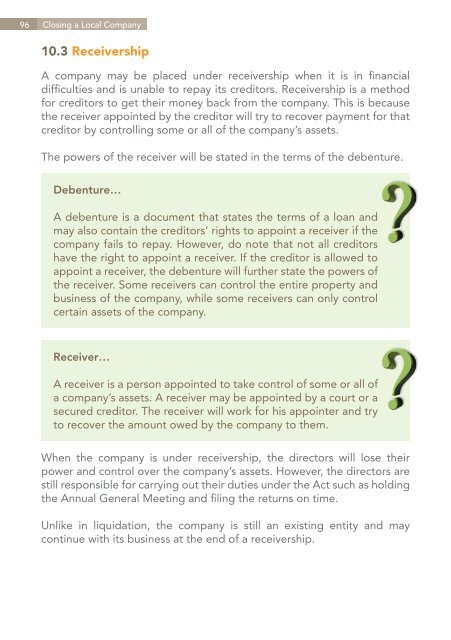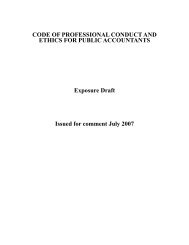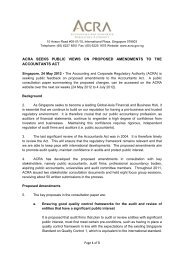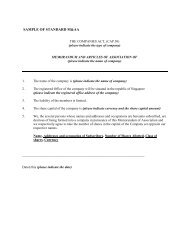Section 10: Closing a Local Company - ACRA
Section 10: Closing a Local Company - ACRA
Section 10: Closing a Local Company - ACRA
You also want an ePaper? Increase the reach of your titles
YUMPU automatically turns print PDFs into web optimized ePapers that Google loves.
96 <strong>Closing</strong> a <strong>Local</strong> <strong>Company</strong><br />
<strong>10</strong>.3 Receivership<br />
A company may be placed under receivership when it is in financial<br />
difficulties and is unable to repay its creditors. Receivership is a method<br />
for creditors to get their money back from the company. This is because<br />
the receiver appointed by the creditor will try to recover payment for that<br />
creditor by controlling some or all of the company’s assets.<br />
The powers of the receiver will be stated in the terms of the debenture.<br />
Debenture…<br />
A debenture is a document that states the terms of a loan and<br />
may also contain the creditors’ rights to appoint a receiver if the<br />
company fails to repay. However, do note that not all creditors<br />
have the right to appoint a receiver. If the creditor is allowed to<br />
appoint a receiver, the debenture will further state the powers of<br />
the receiver. Some receivers can control the entire property and<br />
business of the company, while some receivers can only control<br />
certain assets of the company.<br />
Receiver…<br />
A receiver is a person appointed to take control of some or all of<br />
a company’s assets. A receiver may be appointed by a court or a<br />
secured creditor. The receiver will work for his appointer and try<br />
to recover the amount owed by the company to them.<br />
When the company is under receivership, the directors will lose their<br />
power and control over the company’s assets. However, the directors are<br />
still responsible for carrying out their duties under the Act such as holding<br />
the Annual General Meeting and filing the returns on time.<br />
Unlike in liquidation, the company is still an existing entity and may<br />
continue with its business at the end of a receivership.
















